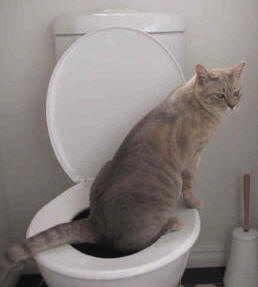Why You Should Never Flush Cat Poop Down Your Toilet - Important Information
Request EstimateEvery person is bound to have their own rationale on the subject of Can You Flush Cat Poo or Litter Down the Toilet?.

Introduction
As cat owners, it's necessary to be mindful of how we deal with our feline buddies' waste. While it may seem convenient to purge pet cat poop down the commode, this technique can have damaging repercussions for both the atmosphere and human health.
Ecological Impact
Purging feline poop introduces unsafe microorganisms and parasites right into the water system, posturing a considerable risk to aquatic ecological communities. These contaminants can negatively influence marine life and concession water high quality.
Wellness Risks
In addition to environmental concerns, flushing pet cat waste can likewise pose health and wellness dangers to human beings. Cat feces might contain Toxoplasma gondii, a parasite that can create toxoplasmosis-- a potentially severe ailment, particularly for expecting ladies and people with weakened body immune systems.
Alternatives to Flushing
Fortunately, there are safer and much more accountable means to throw away pet cat poop. Take into consideration the adhering to alternatives:
1. Scoop and Dispose in Trash
One of the most common approach of taking care of pet cat poop is to scoop it right into an eco-friendly bag and toss it in the garbage. Make sure to utilize a devoted litter inside story and take care of the waste without delay.
2. Usage Biodegradable Litter
Select eco-friendly feline litter made from products such as corn or wheat. These trashes are environmentally friendly and can be securely taken care of in the trash.
3. Bury in the Yard
If you have a lawn, consider hiding feline waste in a designated location away from veggie gardens and water resources. Be sure to dig deep adequate to prevent contamination of groundwater.
4. Set Up a Pet Waste Disposal System
Invest in a family pet waste disposal system especially designed for feline waste. These systems make use of enzymes to break down the waste, decreasing smell and ecological impact.
Final thought
Liable pet ownership prolongs beyond offering food and sanctuary-- it additionally entails proper waste management. By refraining from flushing feline poop down the bathroom and opting for alternate disposal methods, we can lessen our ecological impact and secure human health.
Why Can’t I Flush Cat Poop?
It Spreads a Parasite
Cats are frequently infected with a parasite called toxoplasma gondii. The parasite causes an infection called toxoplasmosis. It is usually harmless to cats. The parasite only uses cat poop as a host for its eggs. Otherwise, the cat’s immune system usually keeps the infection at low enough levels to maintain its own health. But it does not stop the develop of eggs. These eggs are tiny and surprisingly tough. They may survive for a year before they begin to grow. But that’s the problem.
Our wastewater system is not designed to deal with toxoplasmosis eggs. Instead, most eggs will flush from your toilet into sewers and wastewater management plants. After the sewage is treated for many other harmful things in it, it is typically released into local rivers, lakes, or oceans. Here, the toxoplasmosis eggs can find new hosts, including starfish, crabs, otters, and many other wildlife. For many, this is a significant risk to their health. Toxoplasmosis can also end up infecting water sources that are important for agriculture, which means our deer, pigs, and sheep can get infected too.
Is There Risk to Humans?
There can be a risk to human life from flushing cat poop down the toilet. If you do so, the parasites from your cat’s poop can end up in shellfish, game animals, or livestock. If this meat is then served raw or undercooked, the people who eat it can get sick.
In fact, according to the CDC, 40 million people in the United States are infected with toxoplasma gondii. They get it from exposure to infected seafood, or from some kind of cat poop contamination, like drinking from a stream that is contaminated or touching anything that has come into contact with cat poop. That includes just cleaning a cat litter box.
Most people who get infected with these parasites will not develop any symptoms. However, for pregnant women or for those with compromised immune systems, the parasite can cause severe health problems.
How to Handle Cat Poop
The best way to handle cat poop is actually to clean the box more often. The eggs that the parasite sheds will not become active until one to five days after the cat poops. That means that if you clean daily, you’re much less likely to come into direct contact with infectious eggs.
That said, always dispose of cat poop in the garbage and not down the toilet. Wash your hands before and after you clean the litter box, and bring the bag of poop right outside to your garbage bins.
https://trenchlesssolutionsusa.com/why-cant-i-flush-cat-poop/

I'm certainly very taken with How to Dispose of Cat Poop and Litter Without Plastic Bags and I hope you enjoyed reading our blog entry. Do you know anybody else who is involved in the subject? Feel free to promote it. Many thanks for your time spent reading it.
Visit My Website